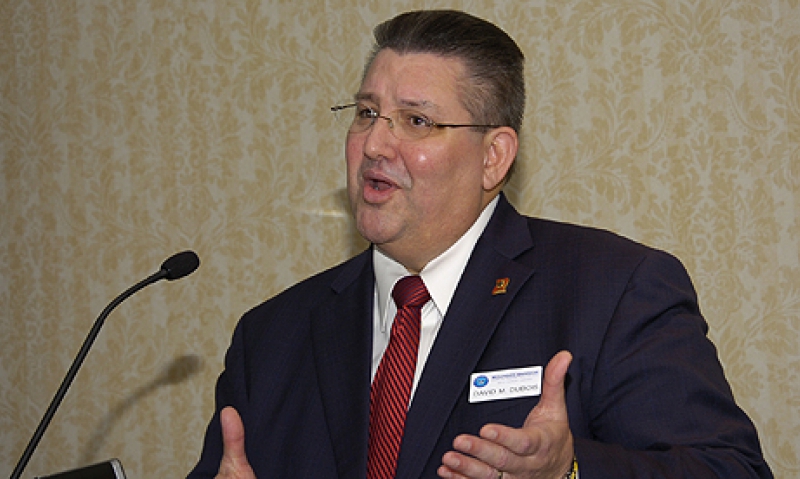
The work of today's Legion demands social networking, says Department of Defense official.
During his year-long tenure, National Commander Clarence E. Hill has repeatedly emphasized his view that social networking is essential to today's work of The American Legion - especially when reaching out to young veterans.
That theme was echoed loudly by David Dubois, director of the Department of Defense Transition Assistance Program (TAP) Operations, as he spoke at The American Legion National Convention this week. In his address to members of the Economic Commission, Dubois outlined his program's extensive and ever-expanding catalog of services to military personnel preparing for re-entry into civilian life, then defined the role of Legion posts in aiding today's returning servicemembers.
"The veterans service organizations, particularly at the post level, are the hub of activity within the community. They know the employers, they know the people at the chamber of commerce, they know the community, they know academia," said Dubois, a Legion College graduate. " They could really play a powerful role in being the connection conduit within the community to transitioning servicemembers or those who are returning from deployment (to) the service providers and the leaders within the community.
"The hardest part sometimes is creating a network and getting to work within this network to learn who's out there to mentor you, what opportunities are available, (and) how to translate the skills and knowledge (obtained) from military service to meet the needs of the local community."
To communicate effectively with the "millennium generation" - of which most of today's servicemembers are a part - one must utilize Twitter, LinkedIn, Facebook and other internet-based interactive media. "Social networking has become the new (communications) tool in this generation of transitioning servicemembers," Dubois said. "When you think about it, today's young war fighter has never known life without a cell phone. Everything is through text, everything is instantaneous, (and) that is the generation serving the country today. So, it would make sense that as we communicate our messages and our services and the assistances available, we need we need to be in the marketplace where they shop: the social network."
Dubois, based in Washington, D.C., is a 20-year Navy veteran.
- Convention


